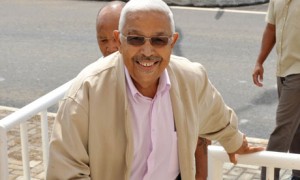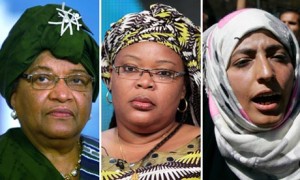
Things are pretty bleak in the international community but it has been a pretty good week for Africa: Two African women Nobel Peace Prize Laureates and finally a winner of the Ibrahim Prize, given to former President of Cape Verde, Mr Pedro Verona Pires (yes the majority of us have not heard of him, but isn’t that the point? We usually learn about leaders that are corrupt and butcher their own people but not those who actually do their job).
Pretty big milestone for Mr. Mo Ibrahim and considering the two-year prize drought there had to be a winner this year because the prize itself risked irrelevancy. It is quite unfortunate, however, that the Ibrahim Prize and Index was overshadowed by the blackberry debauchery and Eurozone bailout, by weeks end it will be an unfortunate footnote with the series of events that have happened this week.

The limited reaction has been interesting. The cynicism has been quite fascinating (I’m always cynical). A lot of the narrative has been favorable towards the African Nobel Peace Prize laureates of President Ellen Johnson Sirleaf and Mrs. Leymah Gbowee, but the response towards the Mo Ibrahim Prize has been cynical at best and hostile at worst. What strikes me is how a European institution (the Norwegian Nobel Committee) can award and acknowledge the works of Africans and receive better press coverage and African reception than that of an African institution awarding another African.
Let’s face it, the Mo Ibrahim Prize is not a perfect solution, there are many limitations to it and the simple idea of paying off leaders extra money for doing a job that they were elected to do rubs people the wrong way. Understandable, but this does not put the leadership deficit we have been experiencing for decades into context. African leaders do not just relinquish power easily and they rarely put a premium on good governance. I think the assumption with the Prize is that leadership in Africa has been very top-down, only recently has this process been reshaped and in time (hopefully) the prize will not be relevant because accountability will be placed and active citizen participation will be very vibrant…but we are not there yet. In many ways the Prize is a work in progress and only time will tell if leaders will try to reshape their approach to the presidency, hoping (rightly or wrongly) for the ultimate “cash money”. If the cost of this or rather collateral is better schools, access to health, good governance then sign me up, do we care about people’s intentions if the outcome benefits all?
Let’s be honest with ourselves, in many countries in the African continent, being a President and in public office has perks that outweigh life after office. Where do these people go to make money for themselves and establish a legacy, no one is really talking about the Mbeki Foundation or Obasanjo Foundation. Do African leaders have the resources to establish multimillion-dollar organization that seeks to do good around the region and profit? These presidents will not be paid $200,000 a session for speeches around the world. Don’t get me wrong, I’m not sympathizing with former presidents at all, there is so much they can do after office but the perception they have is life after public office is brutal.
One legitimate critique is that the Foundation should invest more on the youth of Africa, which I agree they should but they already began that when they realized in 2009 that there is a high chance there could be sporadic droughts of good candidates. The Foundation provides scholarships and opportunities with partner institutions such as the American University in Cairo and the School of Oriental and African Studies (SOAS). There is also the Ibrahim Leadership Fellowship Program, so there are ample opportunities to invest in the youth and we should definitely take advantage!
We will see where all of this goes, five years (the Prize was established in 2006) is not a long time, that’s just one term of a presidency in some cases. It is not the solution to the governance problem in Africa but it is a start to creatively think outside the trapped box we have been living in for over 50 years.
I think what is lost with these events where individuals are singled out is what the underlying message is and in many ways the Index that is always produced after a prize winner is announced is something we as citizens of Africa should take a closer look at. Here in Tanzania the discussion so far has been whether Tanzania deserves to be ranked 13th out of all the African countries. Mind you this index is referring to 2010, not 2011. 2011 has not been kind to Tanzania or the region, so the index is based on facts that do not account for the depreciated Tanzanian shilling, power cuts, diesel shortages and food spikes. Yet, what do you think? Does Tanzania deserve to be ranked that high/low, depending how you see it? I wonder what Egyptians and Tunisians feel about this list since a year ago they were considered one of the top ten countries in Africa representing good governance. Time surely does change everything.


This is a timely issue. The Mo Ibrahim Prize sells itself as an encourager of good governance. Unfortunately the indicators they use piggyback off the same system of governance that invented the difference between “good” and “bad” governance. This system, I fear, gives little room for cultural or religious value in leadership, and instead uses a “scientific” and utilitarian approach to choosing leadership. As a result, in Africa, we are now being encouraged to elect leaders who the West approves of, not who the actual constituents – ie, people – need in power.
How do you choose your leaders?
i agree with Kant…the fact that these systems were not tailored for us is an issue. We are way past complaining our society did not naturally evolve to form structures of government that would suit us. However, this prize does not serve to encourage good governance. How we choose our leaders is another very interesting question, i would say to rebrand ‘democracy’ to something that would suit us better. Just a mere thought.